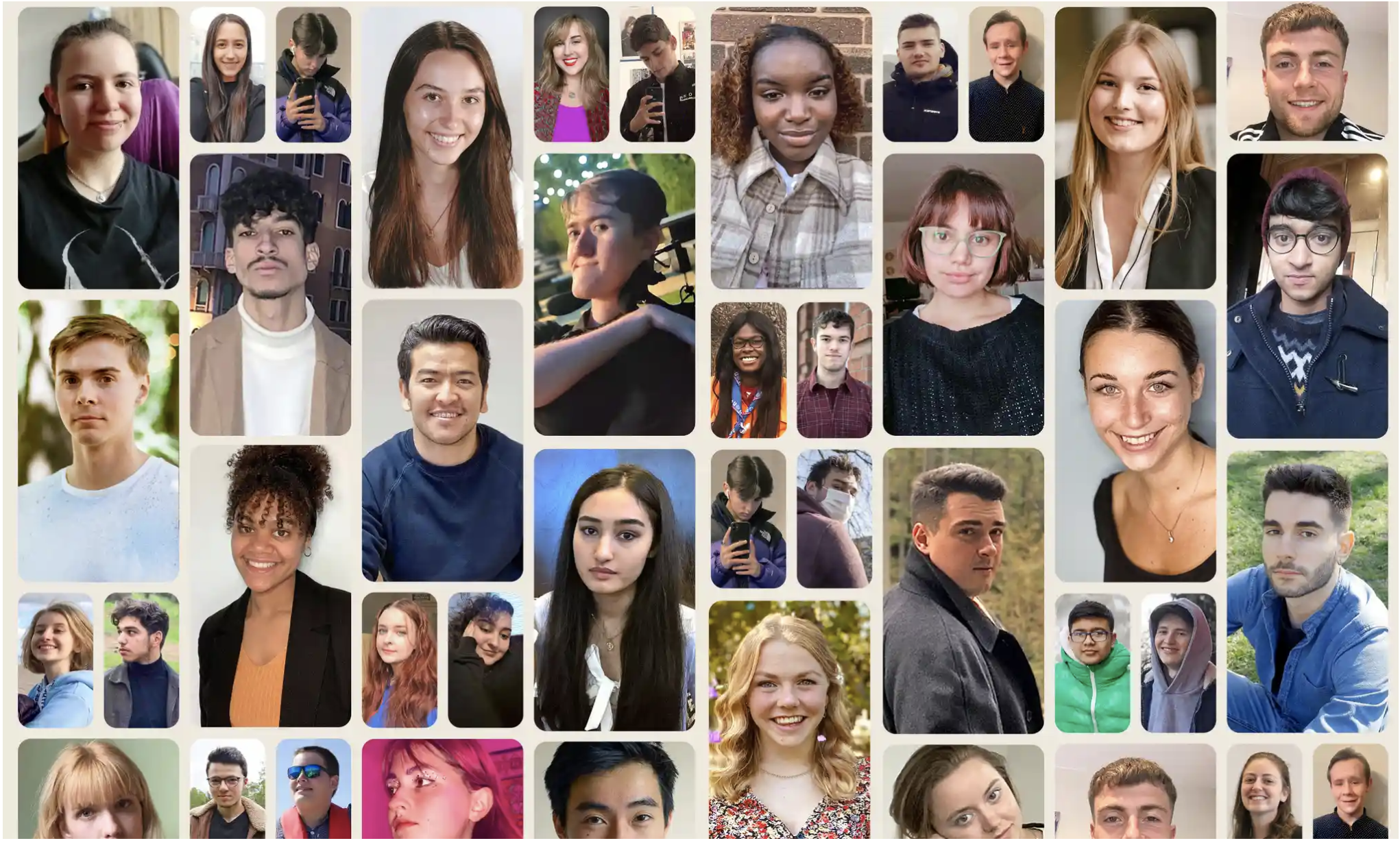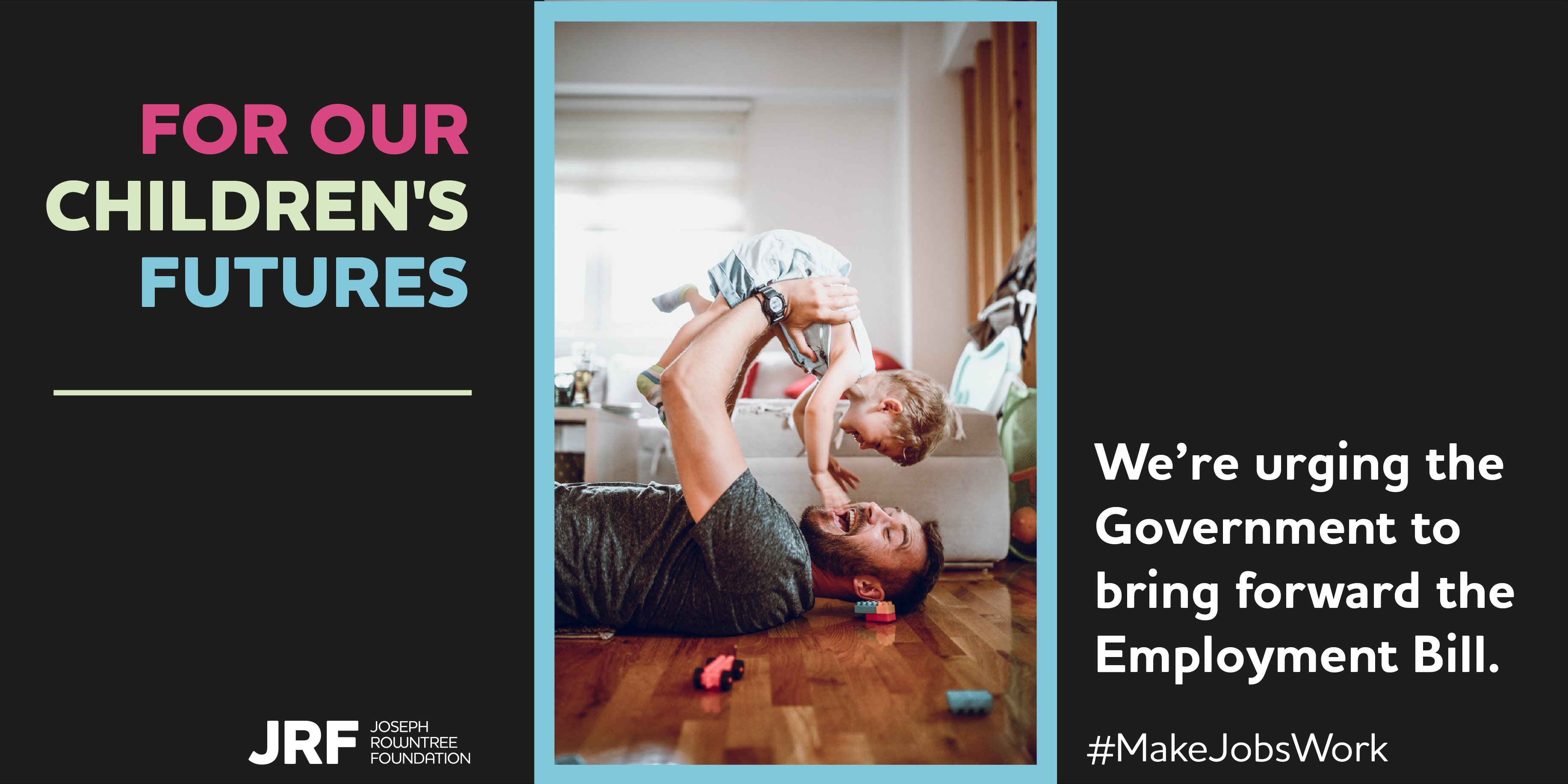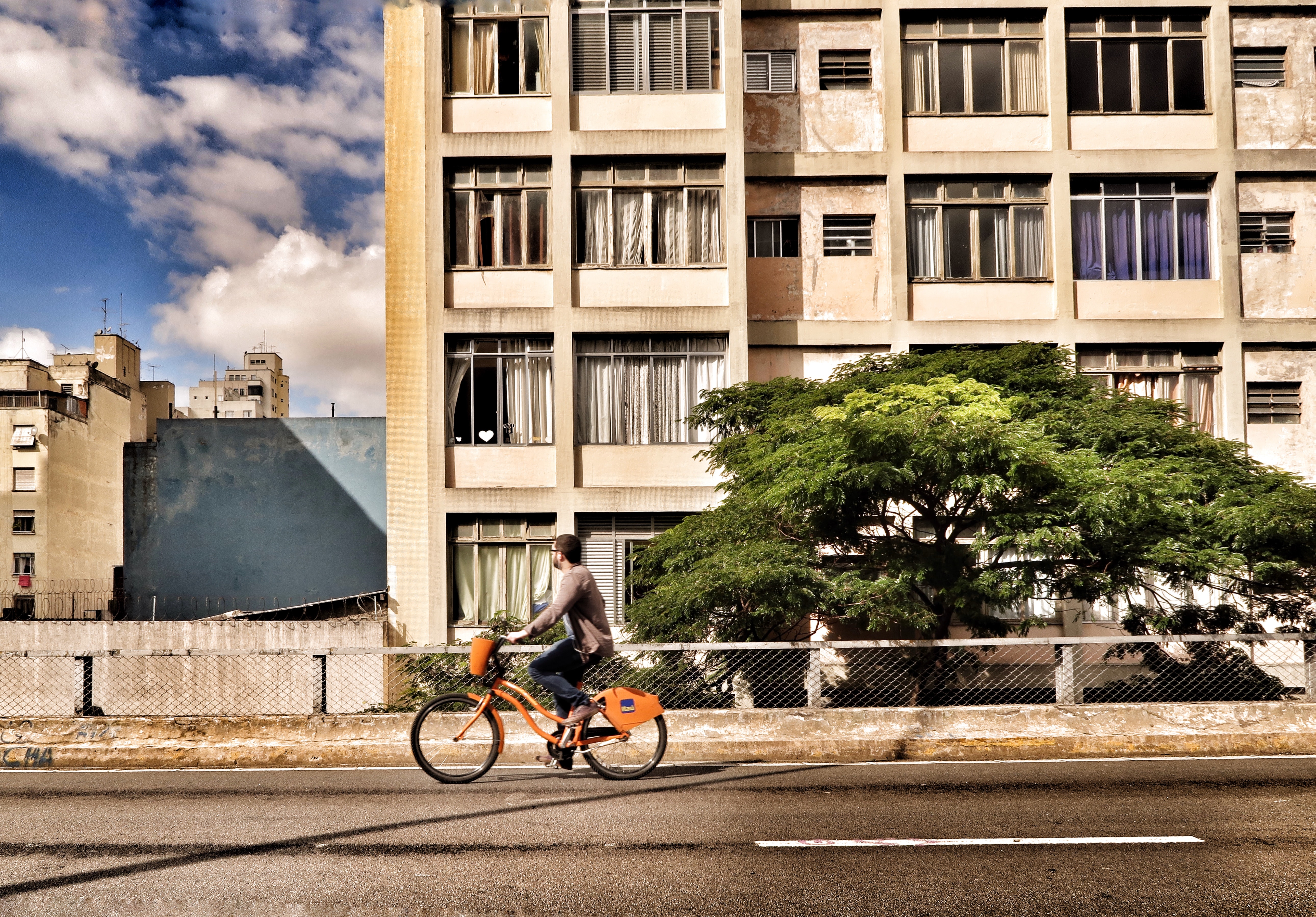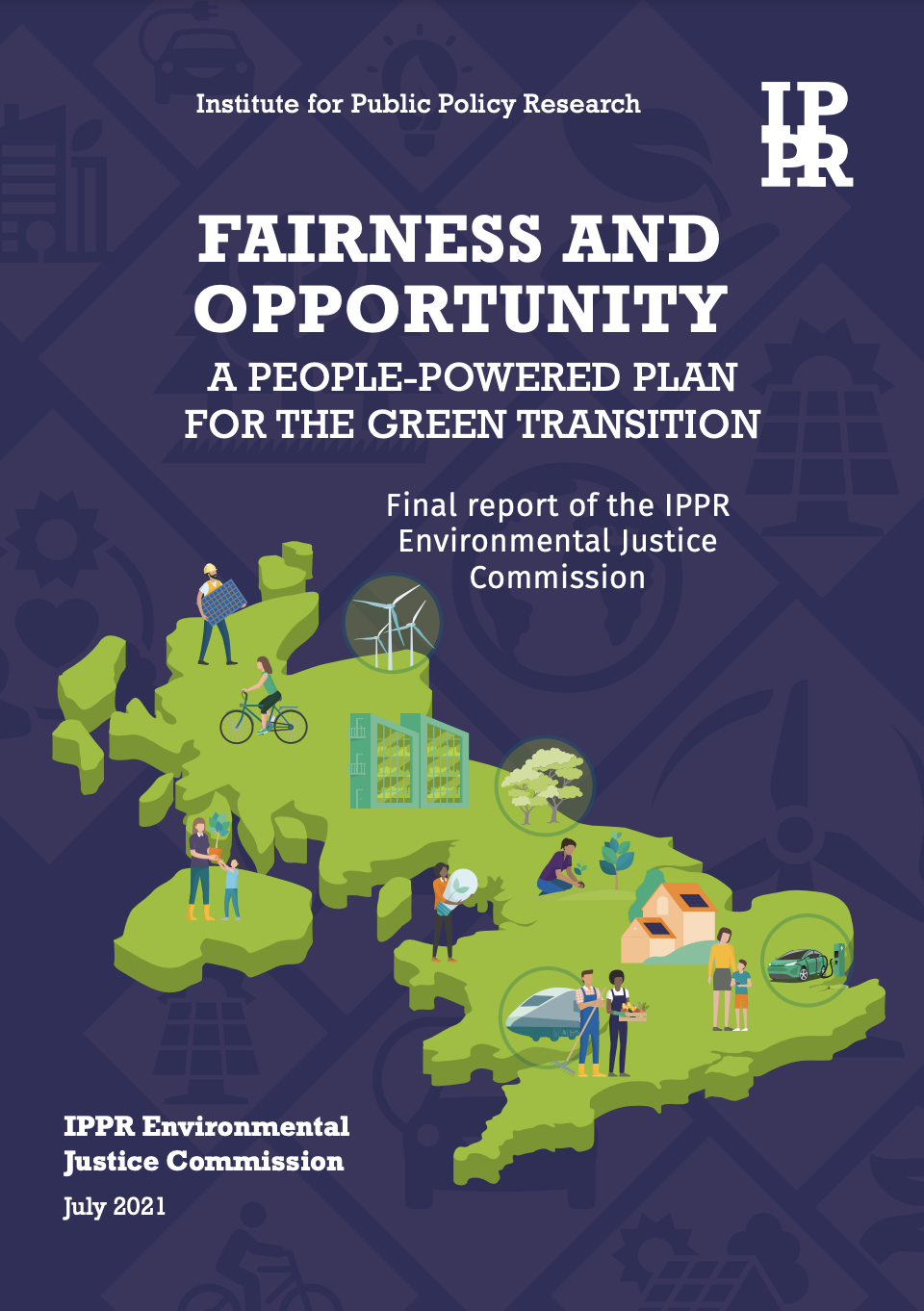Talking Points reflects on our post-pandemic future
Posted on 04 Aug 2021 Categories: Blog, Climate crisis, Coronavirus, Inequality, Local initiatives, Talking Points, Young people
by Rethinking Poverty
What does the experience of Euro 2020 and its aftermath tell us about the state of England today, and about the outlook of the younger generation as we emerge, oh so slowly, from the pandemic? Other issues looming large are the future of work, growing poverty and inequality, and the urgent need to create a more sustainable and fairer world before it is too late. These are the topics covered by the June/July issue of Talking Points, as we look towards a post-pandemic future.
Lessons from Euro 2020
‘Southgate showed us a new England, but the old one hasn’t gone away, writes David Olusoga. ‘Southgate’s England – encapsulated in his Dear England letter before this year’s tournament began – is united, youthful and instinctively forward-thinking,’ he says. ‘It is diverse, and comfortable in its diversity … in stark contrast to the cult of bitter, backwards-looking jingoism that exists among sections of its fanbase … Twenty-six young men and their remarkable manager have again reminded us that there is another path, another form of English patriotism, another way of being together and – if enough of us want it – another England.’
‘England’s footballers speak for the new generation better than any politician,’ in Owen Jones’ view. ‘Young people have for some time now been revolting against an ancien regime in Westminster that is rigged against their living standards and their progressive values; and however flush these players’ bank accounts are, they cannot escape where they came from.’
He cites research by the Institute of Economic Affairs showing that two-thirds of younger Britons today would prefer to live in a socialist economic system, while 72 per cent support public ownership of industry and large majorities blame capitalism for the climate emergency and the housing crisis. ‘Fury simmers among the country’s younger generations,’ he says.

Generation Z: a radicalised generation?
This fury is evident in the responses to a wide-ranging Guardian project, which reveals that Covid-19 policies risk leaving psychological and socioeconomic scars on millions of young people across Europe. ‘“Our whole generation has just been pushed aside as a problem to deal with later,” a 17-year-old in the north of England responded. From Germany, a 21-year-old wrote: “We are the lowest priority.” And in France, a 21-year-old said he counted himself part of “a sacrificed generation”.’ Young people from across Europe said the crisis had made them impatient for systemic change and determined that their generation would create more caring societies in the future.
When the Guardian asked Europeans in their late teens and early 20s how the pandemic has made them feel, reports Paul Mason, ‘you might have expected an outpouring of frustration: over jobs lost, friendships forcibly attenuated, dates cancelled. What arrived was a critique of capitalism.’

Young people: how we are failing them
‘Ministers had a chance to improve young people’s lives – and flunked it yet again,’ writes the Guardian’s Simon Jenkins. England’s schools recovery chief bid for a £15 billion three-year education ‘catch-up’ programme was reduced to £1.4 billion. The government’s ‘watered-down package’ amounts to about £50 a year per pupil, against the US’s £1,600 and the Netherlands’ £2,500.
One huge barrier to tackling inequalities is the lack of understanding of the lives of disadvantaged young people. This point was made several times during LSE’s recent panel discussion on ‘Youth and inequalities in the UK’. This insight lies behind the ‘social modelling approach’ developed by Jason Allen, who works with young people facing violence and exclusion. The approach draws heavily on his own experiences. At age 15 he was put in adult hostels. He became involved in crime and was excluded from education. His starting point: what didn’t he have as a young person?
The post-pandemic future of work
In a significant change of approach from last summer, the government is minded to let companies make their own decisions about returning to the office rather than ministers telling workers to return when lockdown ends.
This leaves companies with three broad choices: bring everyone back to the office; introduce a flexible working regime; or allow people to work from home permanently. For the majority of large corporates, it seems that the future of work is hybrid. Many of the UK’s largest office occupiers intend to allow more flexible working in a post-pandemic future, with staff splitting their time between office and home.
While many have found unexpected benefits from home working – the last 12 months has seen a massive rise in interest in fatherhood and dads’ groups, reports Alexandra Topping – employers may also reap benefits. In the future, bosses may expect more hours in exchange for remote work, writes the New York Times. ‘With all the commute time freed up, what is to stop them from simply asking employees to work longer from home – to prepare that report before the meeting starts in the morning or to answer emails or contact clients or file those forms at all hours of the day or night?’
So great is the potential problem that some in the UK are advocating for a new law to ban out-of-hours emails and for ‘the right to disconnect’ to be recognised in employment law reform. A similar law took effect in France in 2017, and Italy and Spain followed suit. The pandemic has accelerated this interest in a right to disconnect.
Another issue is that housing inequality will deepen as millions more flats and houses are turned into workplaces. ‘A policy that further cements the importance of property ownership – because people are working in homes as well as living in them – could easily turn out to boost the interests of owner-occupiers and landlords at the expense of the UK’s estimated 13 million private renters, who are already at a disadvantage due to their lack of assets and housing security.’
Can we make jobs work?
Millions of Brits are falling short of the minimum income needed to live secure and stable lives even if they are on universal credit or earn the national living wage, anti-poverty experts have warned. This is the context in which Joseph Rowntree Foundation has launched its #MakeJobsWork campaign. Working with people with experience of poor-quality jobs to better understand the issues that hold people back, JRF is asking the government to introduce new rights to more secure work in a post-pandemic future; make flexible working the default from day one of employment; and double the number of labour market enforcement inspectors.

A four-day week?
Long working hours lead to deaths from heart attacks and strokes – 745,000 in 2016. As we emerge from the pandemic, we urgently need to reclaim our free time, writes Emily Scurrah in Tribune. The Communication Workers Union recently won a campaign to secure a four-day week for postal workers who have had significant parts of their role replaced by machines. ‘This should be a model for the post-pandemic future.’
‘The four-day week is unavoidable, it is the way we have to go,’ says former BBC radio broadcaster David Hulme about his experience of working a four-day week in the 1970s. The four-day week lasted for two years in the BBC Radio Manchester newsroom until a new manager decided to revert to the five-day, 41-hour week that their employment contract stipulated. ‘But the fact this shortened week was able to run for so long without being noticed by London management is a testament to the fact that the quality of work and productivity had increased during the period.’
But a four-day week mustn’t mean a pay cut, say British workers. Research shows that eight out of 10 British employees would not favour a reduction in working hours if it resulted in lower wages.
Growing poverty and inequality
At least 130,000 households in England were made homeless during the first year of the pandemic, despite the government’s ban on evictions. With the ban now over, fears are rising that a surge of evictions may be imminent. Greater Manchester’s pandemic death rate has been 25 per cent higher than the national average, new research reveals. Meanwhile, government promises to level up funding in education have resulted in money being shifted away from schools in the most disadvantaged areas.
At the other end of the scale, millions become millionaires during the Covid pandemic, with recovering stock markets and soaring house prices helping to boost people’s wealth. Britain’s wealth gap has ballooned during the pandemic with the richest 10 per cent gaining £50,000 on average.
Rising poverty and inequality has generated pushback from unexpected quarters – like investors groups at companies including Morrisons, Foxtons, AstraZeneca and Cineworld, who have been voting in significant numbers against bumper executive pay packets – and more expected quarters like the Joseph Rowntree Foundation, whose new report shows that millions of households across the UK are having to live on incomes that fall far short of what the public thinks is needed for a minimum standard of living. As the government prepares to cut universal credit by £20 a week in October – the biggest overnight cut to the basic rate of social security since the Second World War – it has been revealed that the Department for Work and Pensions (DWP) has made no assessment of the cut’s potential effect on women, ethnic minorities and those in deprived parts of the UK, the people worst affected by pandemic poverty.
Twenty years of local economic interventions have consistently failed to address UK inequality, according to the Institute for Community Studies, which found that over £50 billion of investment has contributed to zero average change in the most deprived local authority areas. The report pointed to a lack of community involvement in decisions about local economic development.
A more sustainable world
Dutch sustainability researcher Gaya Herrington, revisiting a 1972 MIT study, The Limits to Growth, concludes that ‘pursuing continuous growth is not possible’. Sustainability is the answer, she says. ‘There is a sustainable way of creating value and prosperity that also has immense economic potential.’ The pandemic, she believes, has shown the world what might be possible.
The pandemic has revived hope that a more sustainable post-pandemic future is possible, agrees Jeremy Caradonna. The ‘smartest cities’ – from Milan to Mexico City and Mumbai – took tangible steps to advance active transportation, build new bike lanes and create ‘the 15-minute city’, while around two thirds of Europeans say they do not want to return to pre-pandemic levels of air pollution. While carbon emissions worldwide decreased for the first time in decades, by an average of 26%, sadly the early signs from 2021 suggest that they are already bouncing back. ‘We, of the wealthy global north, must find ways to create prosperity without aggregate economic growth,’ he concludes.
Tragically, to date trillions of dollars have been spent on Covid recovery in ways that worsen the climate crisis. Only about a tenth of the $17 trillion in bailouts provided by governments since the start of the pandemic was spent on activities that reduced greenhouse gas emissions or restored the natural world.

How to get to a sustainable world
A new book by Canadian author J B MacKinnon, The Day the World Stops Shopping, explores what might happen if we all bought less stuff. ‘On the hypothetical day the world stops shopping, carbon emissions plummet; the skies turn a deeper blue; and with no ads polluting smartphone screens our minds become as clear as the bottle-free oceans in which whales swim merrily.’ In reality, he thinks we should restructure society over several years to support a sustained reduction in the amount we consume. Consumption has become the primary driver of ecological crisis. We are devouring the planet’s resources at a rate 1.7 times faster than it can regenerate.
Even the pursuit of green ‘alternatives’ can take us down false paths, fostering the belief that we can continue as we are as long as we do it in a ‘green’ way, as ‘conscious consumers’. ‘Unquestioning enthusiasm for “alternative energy” (AltE) can open the door for endless consumerism,’ warns Don Fitz in Local Futures. The slogan ‘Reduce; Reuse; Recycle’, conceived over 50 years ago on the first Earth Day, ‘seems to have been replaced with the slogan “Recycle; Occasionally Reuse; and, Never Utter ‘Reduce” … It avoids the real problem, which is uncontrolled economic growth.’

Fairness essential to the transition
The British public should be given a ‘people’s dividend’ worth billions of pounds as part of the national drive to hit targets for net zero carbon emissions and the restoration of nature, according to the 70,000-word manifesto by the cross-party Environmental Justice Commission. Free local public transport, good new jobs, better health and wellbeing, more green spaces and money for improving homes are at the core of this landmark report. The authors say they have learned from the gilets jaunes (yellow vest) protests in France where fuel tax increases brought a backlash because they were seen as unfair.
Local people must be at the heart of the UK’s rapid transition to net-zero, ‘or else – to put it bluntly – it won’t succeed. Government must clearly set out the broad direction of travel and provide the resources and regulation needed to get there, but everyone affected … must have greater power to take decisions that affect them. Local people know best what will work for local areas and how to go about it.’
Want to keep up-to-date with more articles like this? Sign up to our newsletter.
Posted on 04 Aug 2021 Categories: Blog, Climate crisis, Coronavirus, Inequality, Local initiatives, Talking Points, Young people
